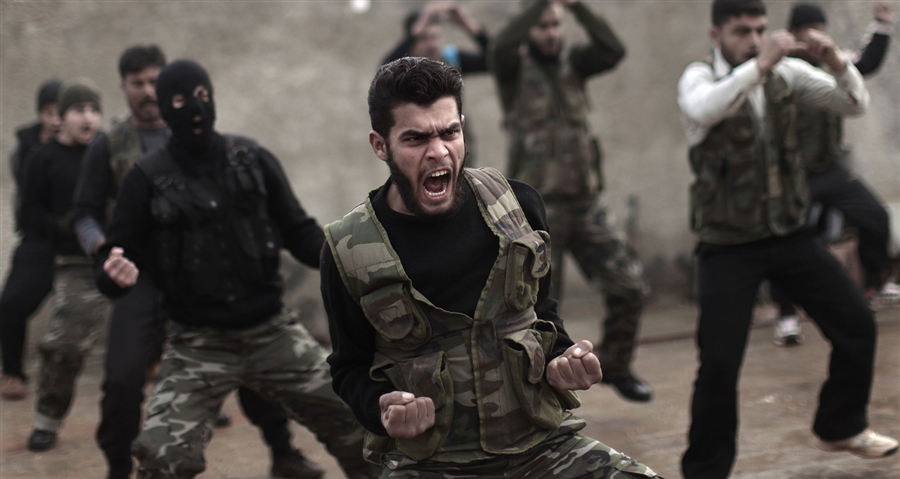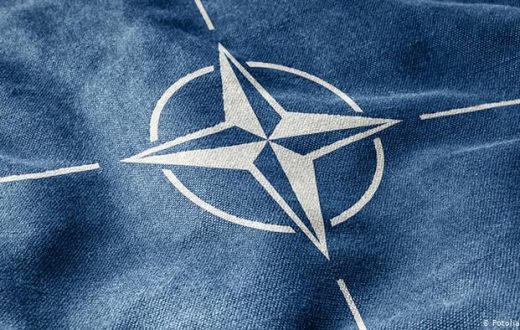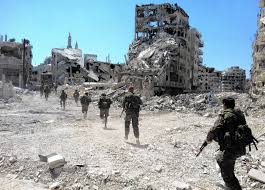Analysis
Over the past few days, two U.S.-backed rebel groups in Syria have been fighting pitched battles in northern Aleppo. But rather than battling the Islamic State or Syrian loyalists, the rebels have been fighting among themselves. The skirmishing between the Marea operations room, a coalition mainly comprised of Free Syrian Army units that hold positions against the Islamic State in northern Aleppo, and the Jaish al-Thuwar rebel group, which is a part of the Syrian Democratic Forces, threatens to undermine international efforts to utilize rebel factions to drive the Islamic State out of the area. To make matters worse, the local conflict has the potential to spread, enveloping the Kurdish People’s Protection Units, better known by the acronym YPG.
Both rebel groups have substantially different narratives about how the fight broke out early last week. Jaish al-Thuwar says the conflict started when al Qaeda-linked rebel group Jabhat al Nusra attacked it near the town of Azaz in northern Aleppo on Nov. 23, forcing Jaish al-Thuwar to defend itself. But the Marea operations room denies that claim, instead saying that Jaish al-Thuwar attacked its positions with the support of the Kurdish YPG and the Russian air force — something Jaish al-Thuwar vehemently denies. Over the weekend, Free Syrian Army units aligned with the Marea operations room managed to gain the upper hand in the fighting, aided by Ahrar al Sham. However, the conflict is expanding and may soon fully include the Kurdish YPG.
The Kurdish YPG is an active ally of Jaish al-Thuwar in the broader U.S.-backed Syrian Democratic Forces coalition. The Syrian Democratic Forces have achieved considerable success fighting the Islamic State east of the Euphrates River, but have only recently begun operating in northern Aleppo in any meaningful way. The entry of Jaish al-Thuwar into northern Aleppo, along with its strong links with the Kurdish YPG, have marked it as a competitor and a potential threat to well-established Free Syrian Army units operating in the area, as well as to more extremist Ahrar al-Sham and Jabhat al Nusra factions. This mistrust has fueled the tension and subsequent fighting between the two sides.
Like the Americans, the Turks were hoping to push the Islamic State from the Marea-Jarabulus line, utilizing the Free Syrian Army units of the Marea operations room, as well as the Syrian Democratic Forces. Turkey, while uneasy about Jaish al-Thuwar’s relationship with the YPG, appeared willing to allow the group’s participation in the operation as long as the YPG itself is excluded from any action in the Marea-Jarabulus zone west of the Euphrates. The infighting between the rebels in Aleppo, however, threatens the fight against the Islamic State: The rebels are turning to focus instead on each other, and the YPG is increasingly supportive of its Jaish al-Thuwar partner.
The Turkey-Russia Complication
Meanwhile, Russian aircraft are intensively striking rebel supply lines on the Turkish border in northern Aleppo, working to close the Syria-Turkey border in retaliation for Ankara’s downing of a Russian jet Nov. 24. The Russian air force’s active presence in northern Aleppo threatens the planned operation against the Islamic State in the Marea-Jarabulus zone, raising the risk of a confrontation between Russian aircraft and Turkish warplanes supporting the operation.
Nevertheless, Turkish armed forces are increasing their presence on the Syrian border with Aleppo province, south of the Turkish city of Gaziantep. The Turkish air force moved additional fighter jets to its airfields near Syria, while Turkish ground forces dispatched reinforcements, including tanks, to support forward elements on the border. The Greek media also reported that Ankara has moved troops, tanks, and artillery from the 1st Army — tasked with guarding Turkey’s borders with Greece and Bulgaria — to the border area north of Aleppo. Turkish officials continue to state that an operation against the Islamic State in northern Aleppo is going to take place.
Ankara has long been pushing for such an operation in order to drive back the Islamic State from its borders, strengthen Turkey’s rebel proxies in Syria, and further contain perceived Kurdish expansionism. Yet with rebels fighting each other, distracted in their efforts to stop loyalist advances elsewhere in Syria, it is increasingly likely that the Turks will need to commit ground forces to push the Islamic State back.
Faced with this prospect, Ankara has to decide whether to further postpone the operation being planned with the United States or to cancel it completely. Turkey could proceed with a modified operation that includes a greater role for its armed forces, but this would risk not only its troops in battle against the Islamic State but also the hazards of friction and potential escalation with Russia. Turkey needs to drive the Islamic State from the Marea-Jarabulus line, but rebel infighting and the looming Russian presence complicates Ankara’s plans enormously.







